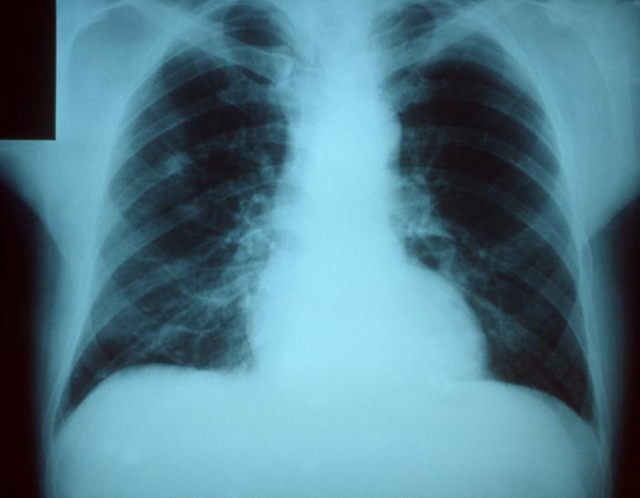
As a parent should be vigilant, if your child has cough and respiratory problems because it could be an early sign of pneumonia. The cause of pneumonia is quite diverse, ranging from bacteria, fungi, and a number of viruses. Even flu viruses can also trigger pneumonia in children.
Pneumonia occurs after the upper respiratory tract which includes the infected nose and throat, in the form of a cold and sore in the throat. After two to three days, the infection may spread to the lungs. Because the immune system is weak or not fully formed is not able to eradicate a mild initial infection that spreads to the lungs and can cause pneumonia. With pneumonia, airway to the lungs can be inhibited, so that breathing becomes difficult and reduced oxygen intake. [1]
Pneumonia in newborns younger than three weeks, usually transmitted from the mother at birth. The causes are Escherichia coli bacteria, Streptococcus group B, and Listeria monocytogenes. In infants aged 3 weeks-3 months the main cause of pneumonia is the bacteria Streptococcus pneumoniae and viruses. While the common cause of pneumonia at age 4 months-5 years is respiratory syncytial virus (RSV). [2]
Symptoms of pneumonia in children
Pneumonia in children Somewhat different from pneumonia in general, pneumonia in children precisely in some cases is not characterized by increased respiration, especially if the pneumonia attacks the lower lungs. Symptoms that occur generally just the fever, vomiting and pain in the lower abdomen.
Here are some other symptoms that indicate your child is attacked by pneumonia include:
- Cough, which may be dry and may also be phlegm followed by green or yellow mucus or mucus.
- Breathing in high tones,
- Difficulty breathing. children who contract the disease, Generally still will feel difficulty breathing even when he was resting.
- Throws up,
- Fever,
- experienced chest pain.
- often abdominal pain that can occur because your child's effort is too hard to breathe normally.
- Decrease in activity.
- Loss of appetite.
- In more severe conditions the color of your child's lips and nails will turn blue.
- frequent sweating. [3]
How to prevent neumonia In children
At the age of children, pneumonia can be prevented by routinely getting a vaccine that will usually be given since the age of about two months. In addition, pneumonia will have an even worse effect when the attack comes along with other diseases.
Especially when comorbidities are chronic diseases that come recurrences such as heart or asthma. Although pneumonia is not a category of infectious diseases, but the microorganisms that cause this disease can spread through water droplets during sneezing or coughing. So your child should:
- Closes mouth every time someone with coughing and sneezing pneumonia is nearby.
- Try to wash hands with soap, to prevent the spread of any bacteria or viruses.
Some other conditions can also increase your child's chances of developing pneumonia. The condition is like living in areas with high levels of pollution and dense and have parents as active smokers. [4]
Treatment of pneumonia
If pneumonia is caused by bacteria, doctors usually give antibiotics. This almost always cures pneumonia caused by these bacteria. Be sure to take antibiotics exactly as recommended. Do not stop taking antibiotics just because you feel better. you need to spend on a given antibiotic.
Pneumonia can make you feel very sick. But once you take antibiotics, you usually start feeling much better. Call your doctor if you do not start feeling better after 2 to 3 days of administration of the antibiotic. Call your doctor immediately if you feel worse.
Lots of rest and sleep, and drink plenty of fluids. Do not smoke. If your cough makes your sleep disturbed, talk to your doctor about using cough medicine. You need to go to the hospital if you experience a worsening of symptoms, perhaps due to a weakened immune system, or other serious illness. Pneumonia caused by a virus is usually not treated with antibiotics. but sometimes, antibiotics can be used to prevent complications. But home care, such as rest and treat your cough, is the solution to viral pneumonia. [5]
Reference :
[1] (http://www.alodokter.com/kenali-dan-cegah-pneumonia-pada-anak)
[2] (http://cara-menyembuhkan.com/awas-radang-paru-bisa-menyerang-anak/)
[3] (https://hellosehat.com/parenting/tips-parenting/pneumonia-pada-anak/)
[4] (https://hellosehat.com/parenting/tips-parenting/pneumonia-pada-anak/)
[5] (http://doktersehat.com/diagnosis-dan-pengobatan-pneumonia/ )